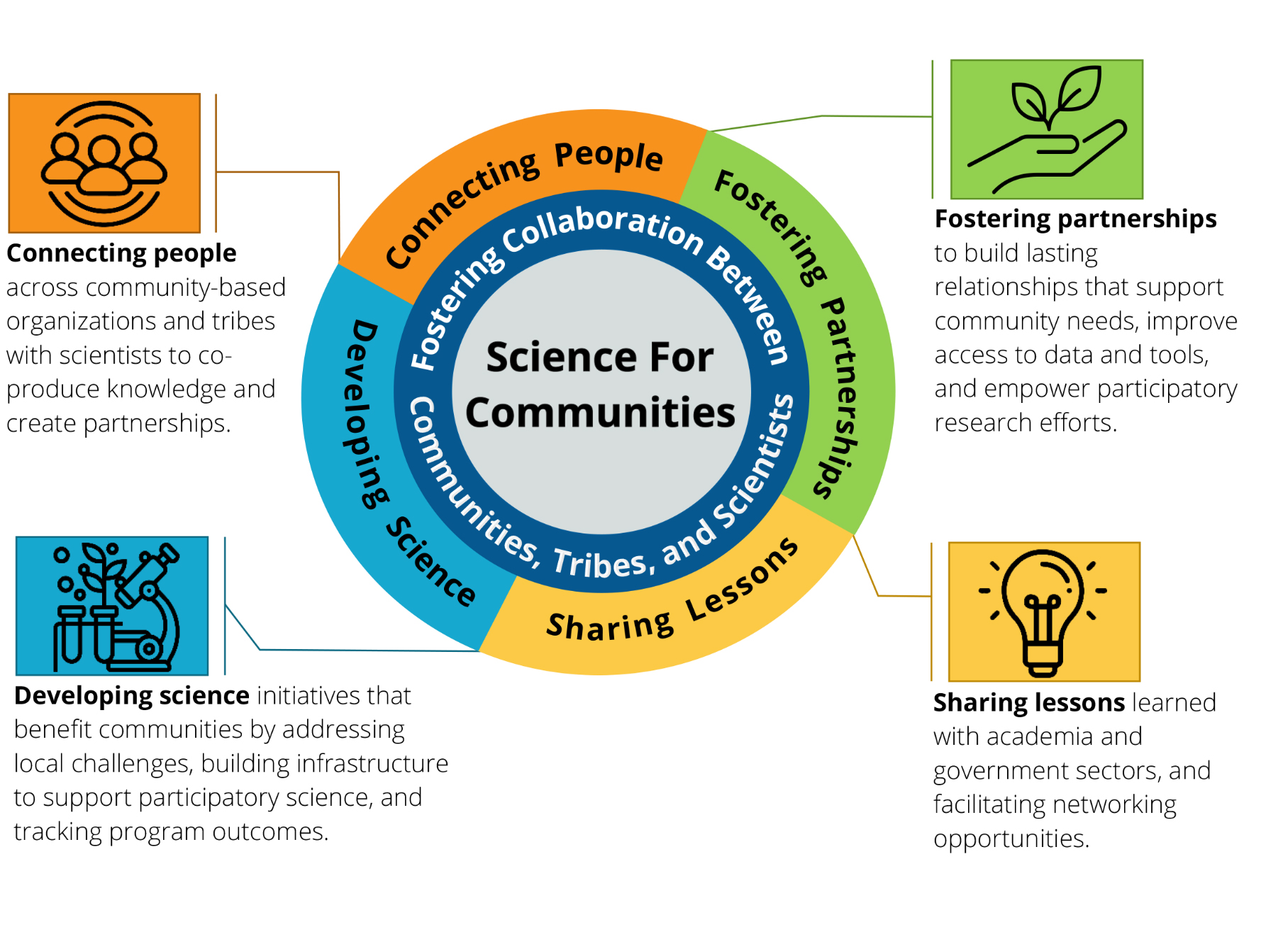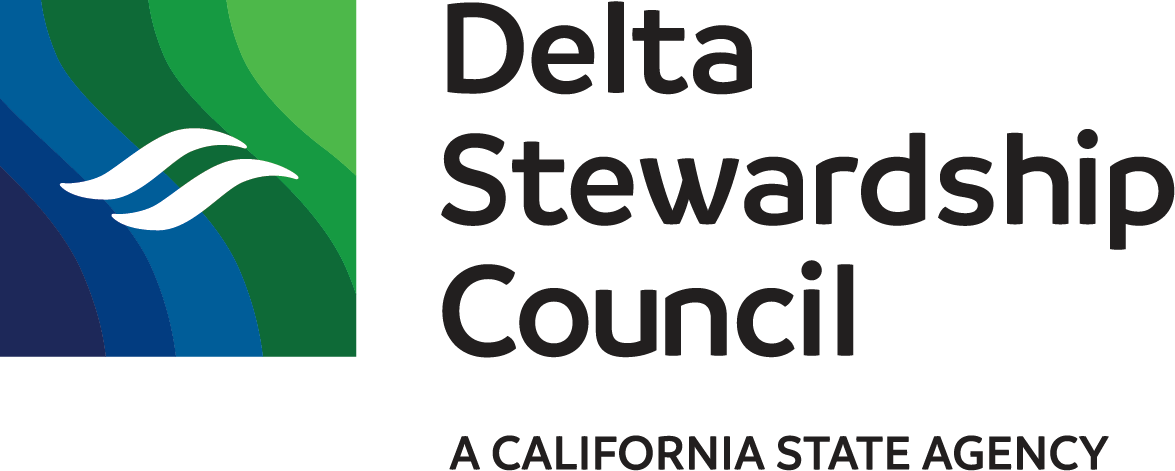Science for Communities
About the Science for Communities (SFC) Initiative
The Delta Stewardship Council’s SFC initiative facilitates and fosters partnerships between Delta communities, local public agencies, and subject matter experts to explore challenges and opportunities in Sacramento-San Joaquin Delta communities. The initiative promotes the sharing of knowledge, tools, and data to support relationship building, collaboration to address social-environmental issues, and funding access for further research and training. Please refer to the information sheet for a summary of the SFC initiative.

How to Participate
If you are interested in participating in the Science for Communities initiative, please complete the Interest Form by July 18, 2025.
The process for interested parties includes completing a short survey summarizing project idea(s). Council staff will then identify academic and agency subject matter experts as project partners through a separate survey. Participating SFC teams will be expected to start their projects this summer.
If you have questions on SFC, please consider joining our virtual open house on June 11, 2025, from 3:00-5:00 PM via Zoom. Questions may also be emailed to deltacouncil.sciforcommunities@deltacouncil.ca.gov.
Why SFC is Important
Many scientists are eager to support communities but often lack the relationships and connections with community leaders needed to do so effectively. At the same time, many community organizations are open to collaboration and external support, but may not have the connections with the scientific community.
Data gathered from the “Delta Residents Survey” shows that about half of the communities generally trust scientists. One-third of respondents cited being too busy or feeling like their input would not influence decision-making as key barriers preventing them from engaging in Delta issues that matter to them. For meaningful engagement to occur, communities need accessible, trusted connections to resources, which this initiative aims to foster.
The initiative pairs Delta communities, including tribes, and local public agencies with private, government, and academic research scientists to collaborate on projects. Over the course of each SFC cycle, participants will have the opportunity to:
- Share data and technical tools with their communities and expand public reach.
- Connect with subject matter experts (SMEs) in the Delta and better understand each other’s needs.
- Collaborate with SMEs to co-produce resources that will raise awareness of key issues impacting communities.
- Connect with other resources, including funding opportunities.
- Provide an online space on the SFC website where project findings are available to the public.
- Present projects in webinars and panel(s) at the next Bay-Delta Science Conference.
| Past Partnership Projects | ||
|---|---|---|
| Partnership Groups | Year Completed | Project Description |
|
CBO:
Partners: |
2024 | Youth Organizers Curriculum and Environmental Literacy in Diverse Audiences: Identified suggestions to improve the Youth Organizers curriculum, prioritizing teaching program participants how to tap into their personal networks to advance environmental literacy across diverse audiences.
Project materials are coming soon! |
| CBO and Tribe:
Partners: |
2024 | Staying Informed on Harmful Algal Blooms: Highlighted the indicators and signs of harmful algal blooms, as well as tangible actions that tribes and Delta communities can take to stay safe.
Project materials are coming soon! |
| Tribal-Serving CBO:
Partners: |
2024 | Safe Fish Consumption: Shared guidance for the safe consumption of wild fish and discussed the impacts of contaminants on tribes and other communities in the Delta.
Project materials are coming soon! |
| CBO:
Partners: |
2024 | Emergency Housing During Flooding: Gathered data layers to determine the amount of emergency housing available in Delta legacy communities that flood events could impact.
Project materials are coming soon! |
| Tribal-serving CBO:
Partners: |
2022 | Panel Discussion 1: California Indian Environmental Alliance: Explored existing resources to address contaminants in the water that could bioaccumulate in aquatic organisms. Included recommendations on increasing coordination and partnership among tribal governments, state agencies, and academia.
Project materials are coming soon! |
| CBO:
Partners: |
2022 | Panel Discussion 2: Sacramento Regional Coalition to End Homelessness: Explored California's legislative recognition of the Human Right to Water in relation to unhoused populations. Presented early findings from a study on water pollution sources in the lower American River.
Project materials are coming soon! |
| CBO:
Partners: |
2022 | Panel Discussion 3: Sustain Our Abilities: Explored medical and social models for disabilities and ways to incorporate the needs of the disabled community into climate change adaptation processes and projects.
Project materials are coming soon! |
| CBO:
Partners: |
2022 | Panel Discussion 4: Public Health Advocates: Highlighted links between climate resiliency and public health from a community engagement perspective.
Project materials are coming soon! |
| CBO:
Partners: |
2022 | Panel Discussion 5: Restore the Delta: Shared data and educational resources on how to stay safe from harmful algal blooms.
Project materials are coming soon! |
| CBO:
Partners: |
2022 | Panel Discussion 6: Little Manilla Rising: Identified opportunities to improve flood mitigation, preparation, and response by utilizing nature-based solutions in the South Stockton area.
Project materials are coming soon! |
- Delta Plan Interagency Implementation Committee (DPIIC)
- SFC Blogs
- Building Bridges with Science for Communities - March 3, 2022
Resources
- Council - Environmental Justice Web Page
- Council - Delta Adapts: Creating a Climate Resilient Future Web Page
- Council - Social Science Integration Web Page
- Delta Science Program - Research Funding and Fellowships Web Page
Contact Us
For more information or questions about the SFC initiative and process, please email deltacouncil.sciforcommunities@deltacouncil.ca.gov.

